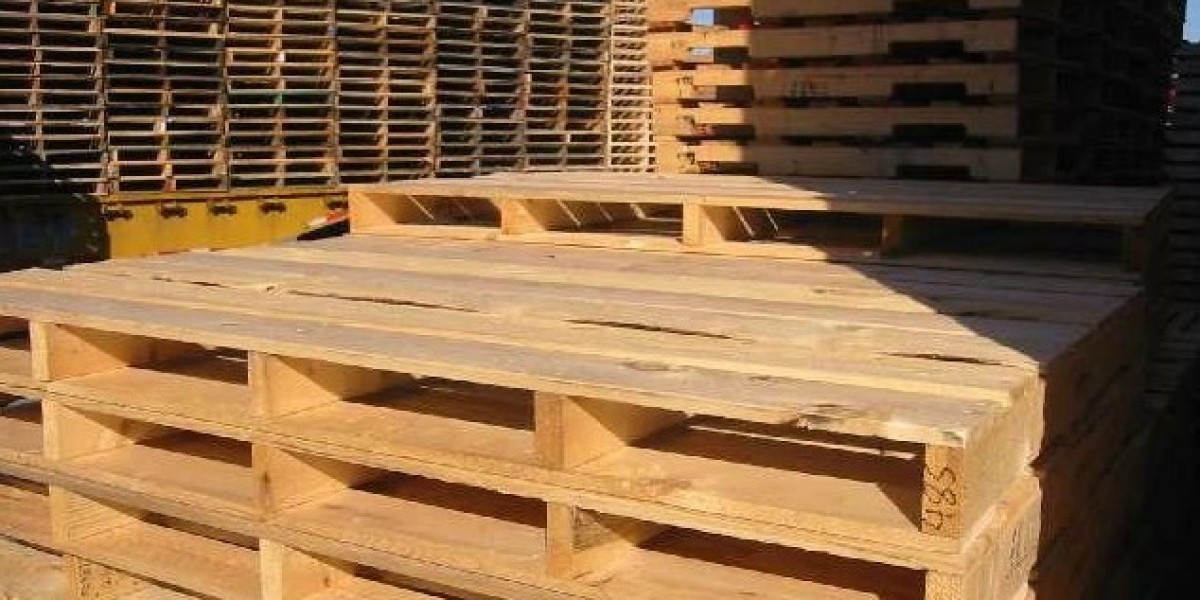In recent years, Costco has introduced a mandate for block pallets in its supply chain operations, shifting from the commonly used stringer pallets. This move has significant implications for suppliers, consumers, and the entire logistics process. Let’s explore the reasoning behind Costco’s choice, the features of Costco block pallet Oakland, and what this change means for businesses and consumers alike.
Understanding the Block Pallet
A block pallet is a type of wooden pallet that differs from the traditional stringer pallet. Instead of having two or three parallel boards, or “stringers,” along the sides, block pallets are supported by nine cylindrical or square blocks in each corner, the center, and the middle edges. This design provides greater structural stability, making the pallets stronger, more durable, and easier to handle in automated warehouses.
Why Costco Switched to Block Pallets
Costco’s block pallet mandate was introduced to improve efficiency, sustainability, and consistency within its supply chain. Here are some key reasons for the switch:
Enhanced Durability and Longevity: Block pallets tend to be sturdier than stringer pallets due to their reinforced structure, which reduces damage from heavy loads and extensive movement within warehouses. This feature is essential for large retailers like Costco, where products are moved frequently and often carry heavy weights.
Better Compatibility with Automated Systems: Block pallets can be accessed from all four sides, unlike stringer pallets, which are typically accessible only from two sides. This four-way entry design is particularly valuable in automated warehouses, where robotic systems and forklifts are optimized for handling pallets in any orientation, increasing productivity and reducing handling errors.
Sustainability and Cost-Efficiency: Block pallets generally last longer than stringer pallets, which means fewer replacements, repairs, and less overall waste. Many block pallets are made from recycled materials or sustainably sourced wood, aligning with Costco’s goal to create a more sustainable supply chain.
Standardization Across the Supply Chain: Costco’s mandate has created a standard for suppliers, simplifying the transportation and stacking process. This consistency across suppliers reduces the risk of pallet-related damages and handling inconsistencies, allowing for smoother operations at every stage of product distribution.
What This Means for Suppliers
The shift to block pallets has introduced certain challenges for suppliers. Here’s how suppliers are adapting to meet Costco’s requirements:
Increased Initial Investment: Block pallets are more costly than traditional stringer pallets due to their construction and material. This initial investment is challenging for suppliers who were previously accustomed to using cheaper alternatives.
Logistical Adjustments: Some suppliers need to reconfigure their operations to accommodate the new standard. This change may require updating storage racks, retooling transportation processes, or even investing in equipment compatible with the four-way entry of block pallets.
Improved Efficiency and Quality Control: Over time, suppliers can benefit from the enhanced durability and efficiency that block pallets provide. By reducing pallet-related damages, suppliers minimize the cost of returned goods and damaged products.
How Costco Block Pallets Affect Consumers
While the choice of pallet may seem far removed from the end consumer, Costco’s adoption of block pallets can indirectly benefit customers:
Higher Product Availability: With a more standardized and efficient supply chain, products can move quickly and reliably from suppliers to Costco shelves. This means less chance of out-of-stock items and fewer delays in restocking popular items.
Reduced Product Damage: With pallets less prone to damage, there is less risk of products being damaged during transit. This improvement can lead to a better overall shopping experience, with products arriving on shelves in optimal condition.
Sustainability Impact: Consumers who prioritize eco-friendly practices can appreciate Costco’s shift towards a more sustainable supply chain. The durability and recyclability of block pallets support Costco’s commitment to reducing environmental waste.
The Future of Block Pallets in Retail
Costco’s mandate has set a trend within the retail industry, with other retailers likely to adopt similar requirements to standardize and strengthen their supply chains. As technology advances, we might see the use of materials beyond wood, such as recycled plastic or even composite materials that can provide durability while being environmentally sustainable.
Conclusion
The transition to block pallets has streamlined Costco’s supply chain, offering a model of efficiency and sustainability for the retail industry. While there are challenges for suppliers, the long-term benefits of reduced damage, increased durability, and compatibility with modern logistics systems make the switch a valuable one. For consumers, it may even mean a better shopping experience, with more reliable stock and improved product quality. Costco’s commitment to sustainability and innovation in its logistics shows how even the smallest supply chain decisions can have a big impact.









